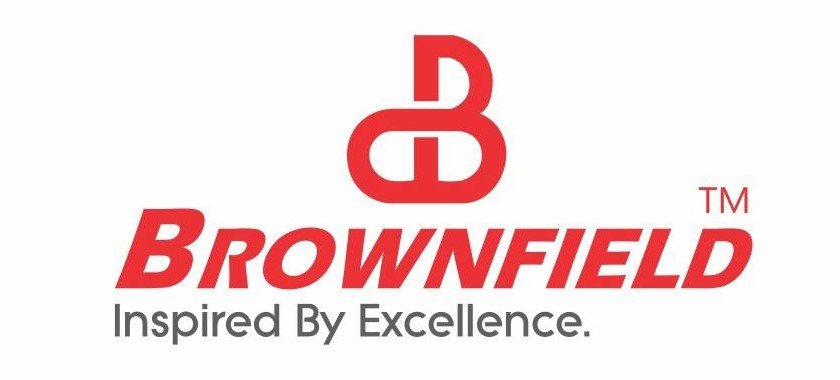High-Density Polyethylene (HDPE) pipes have become a cornerstone in various industries due to their versatility, durability, and cost-effectiveness. Whether you’re planning an agricultural irrigation project, installing industrial pipelines, or ensuring safe transportation of potable water, choosing the right HDPE pipe is critical to the success and longevity of your project. This guide will walk you through the factors to consider, ensuring you make an informed decision.
What Are HDPE Pipes?
HDPE pipes are made from a thermoplastic polymer known as high-density polyethylene. These pipes are lightweight yet robust, corrosion-resistant, and have a long lifespan. They are extensively used in various applications, including:
- Water supply
- Gas distribution
- Agricultural irrigation
- Industrial piping
- Sewage and drainage systems
With their numerous benefits, HDPE pipes are a preferred choice across industries.
Key Factors to Consider When Choosing HDPE Pipes
1. Application Requirements
The purpose of the HDPE pipe determines its specifications. For example:
- Water Supply Systems: Opt for food-grade HDPE pipes to ensure safety.
- Agricultural Use: HDPE coil pipes are ideal for irrigation systems as they are flexible and durable.
- Industrial Applications: Choose HDPE pipes with high pressure and temperature resistance.
2. Pipe Size and Diameter
The size of the HDPE pipe directly impacts flow rates and system efficiency. When determining the right size, consider:
- Required flow rate
- Distance to be covered
- Pressure demands
Consult an HDPE manufacturer for precise sizing recommendations.
3. Pressure Rating (PN Rating)
The Pressure Nominal (PN) rating indicates the pipe’s pressure tolerance. Pipes with higher PN ratings are suitable for high-pressure applications. Popular options include PN 6, PN 10, and PN 16.
4. Quality Standards
Ensure the HDPE pipes meet international or national standards like ISO 4427 or ASTM standards. Pipes that meet these certifications ensure reliability and safety.
5. Material Grade
Different grades of HDPE material cater to varied applications:
- PE 63: Suitable for low-pressure systems.
- PE 80: Ideal for medium-pressure requirements.
- PE 100: Offers the highest strength and durability for heavy-duty applications.
6. Environmental Factors
Consider environmental conditions such as temperature, UV exposure, and soil composition. For example:
- High UV exposure: Opt for UV-stabilized HDPE pipes.
- Corrosive soil: Ensure the pipes have enhanced chemical resistance.
7. Type of HDPE Pipe
HDPE pipes are available in various forms, such as:
- HDPE Coil Pipe: Flexible and ideal for long-distance installations.
- Straight-Length HDPE Pipes: Suitable for shorter, linear applications.
8. Supplier Reputation
Choose trusted HDPE pipe suppliers who offer high-quality products and provide after-sales support. Look for companies with certifications, customer testimonials, and a proven track record.
Why Choose HDPE Coil Pipes?
HDPE coil pipes offer unique advantages that make them ideal for specific applications:
- Flexibility to adapt to varied terrains
- Reduced installation costs due to fewer joints
- High resistance to environmental stress
Key Benefits of HDPE Coil Pipes
- Cost-Effective Installation:
- Minimal jointing reduces labor and time.
- Minimal jointing reduces labor and time.
- Versatility:
- Applicable for agricultural, industrial, and residential uses.
- Applicable for agricultural, industrial, and residential uses.
- Durability:
- Withstands harsh weather conditions and heavy loads.
- Withstands harsh weather conditions and heavy loads.
Finding Reliable HDPE Pipe Manufacturers and Suppliers
Choosing the right HDPE coil pipe manufacturers and suppliers is as important as selecting the pipe itself. When evaluating suppliers:
- Check if they offer customized solutions.
- Look for suppliers based in reliable industrial hubs like Indore, which hosts some of the best HDPE coils manufacturers.
- Verify their adherence to quality standards and after-sales support.
Comparing HDPE Pipes with Other Materials
HDPE Pipes vs. PVC Pipes
| Feature | HDPE Pipes | PVC Pipes |
| Flexibility | High | Low |
| Durability | Long lifespan | Moderate lifespan |
| Environmental Impact | Eco-friendly, recyclable | Less eco-friendly |
| Cost | Higher initial cost, lower maintenance | Lower initial cost, higher maintenance |
HDPE Pipes vs. Metal Pipes
| Feature | HDPE Pipes | Metal Pipes |
| Corrosion Resistance | Excellent | Prone to corrosion |
| Weight | Lightweight | Heavy |
| Installation | Easy | Difficult |
| Longevity | Up to 100 years | Shorter lifespan |
Commonly Asked Questions About Choosing HDPE Pipes
1. What size HDPE pipe do I need?
A: The size depends on your specific application requirements, including flow rate and pressure. Consult an experienced HDPE manufacturer or use a pipe sizing calculator for precise recommendations.
2. Are HDPE pipes environmentally friendly?
A: Yes, HDPE pipes are recyclable and have a low environmental impact due to their long lifespan and resistance to chemical leaching.
3. How do I maintain HDPE pipes?
A: Maintenance is minimal due to the material’s durability. Regular inspections for external damage and ensuring proper joint installations are key to maintaining their longevity.
Conclusion
Choosing the right HDPE pipe is crucial for ensuring the efficiency and longevity of your system. By considering factors like application requirements, size, pressure rating, and environmental conditions, you can make an informed decision. Collaborating with reliable HDPE pipes suppliers and manufacturers ensures access to high-quality products tailored to your needs.
If you’re looking for trusted HDPE coil pipe manufacturers or HDPE coils manufacturers in Indore, Brownfield India is your ideal partner. With extensive industry expertise and a customer-centric approach, we provide innovative and durable solutions to meet your flexible material needs.
Contact Us Today
Ready to find the perfect HDPE solution? Get in touch with Brownfield India to explore our range of products and services. Our experts are here to guide you through every step of the process.


